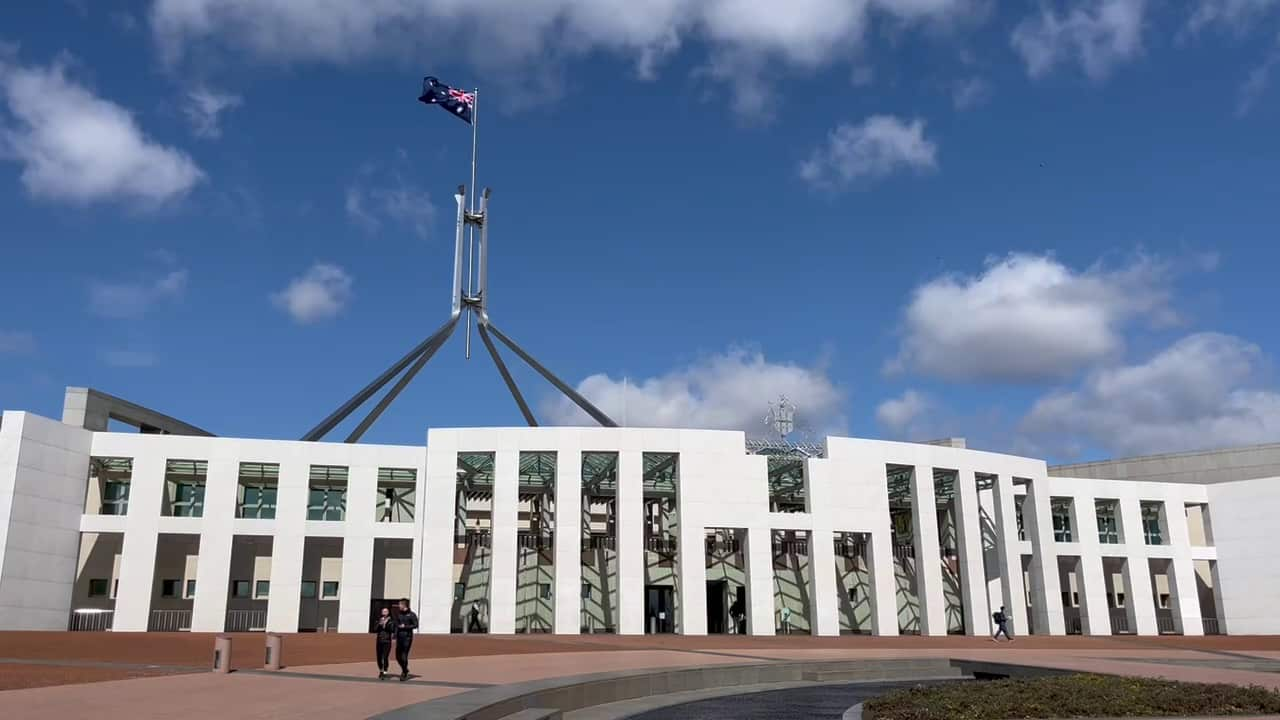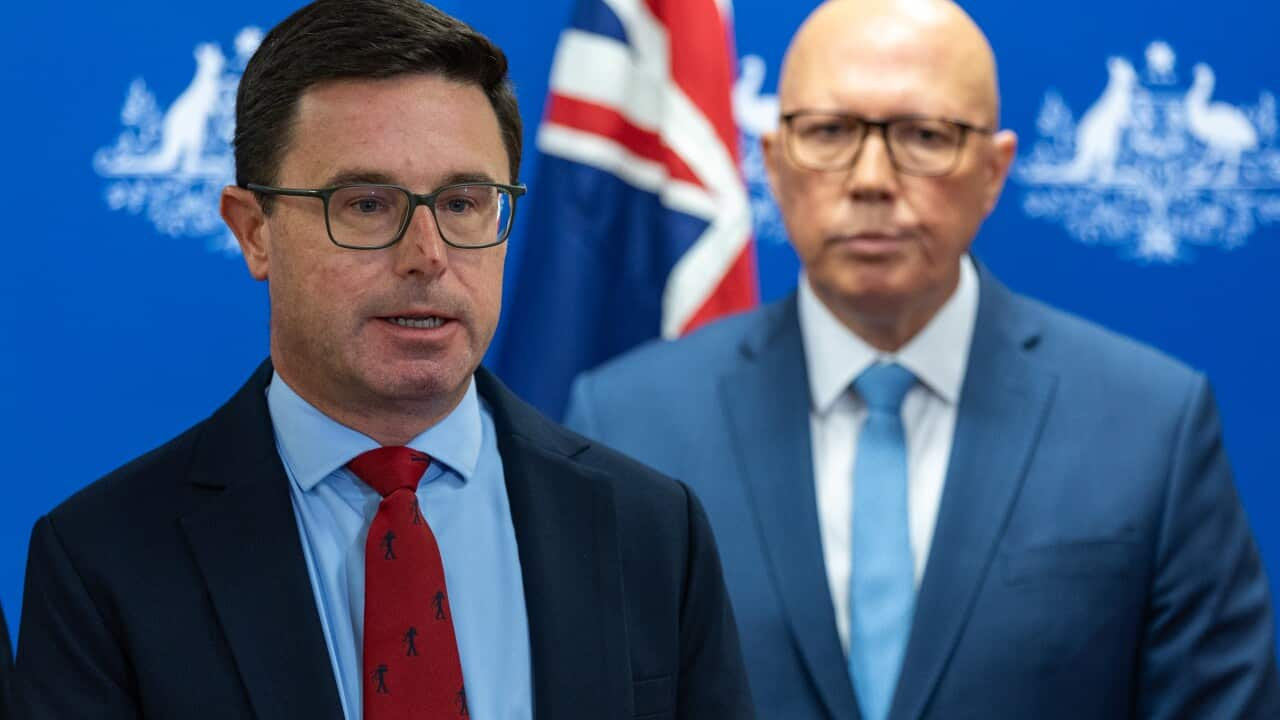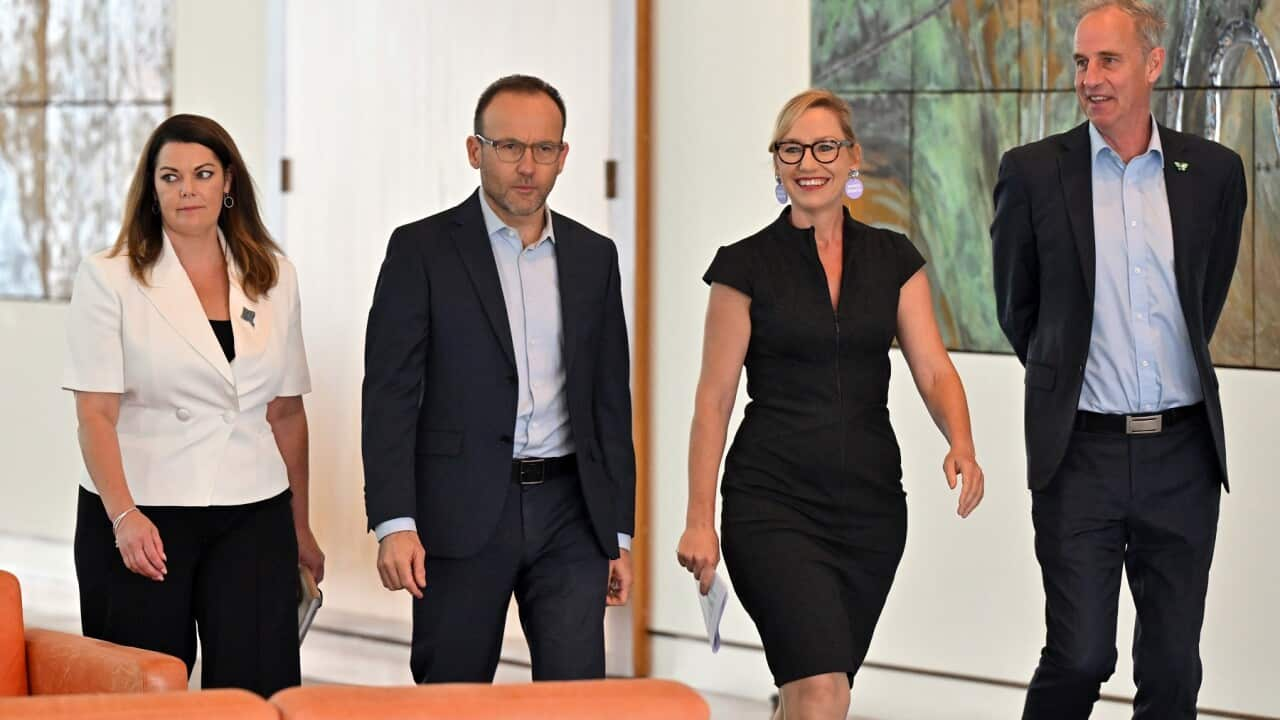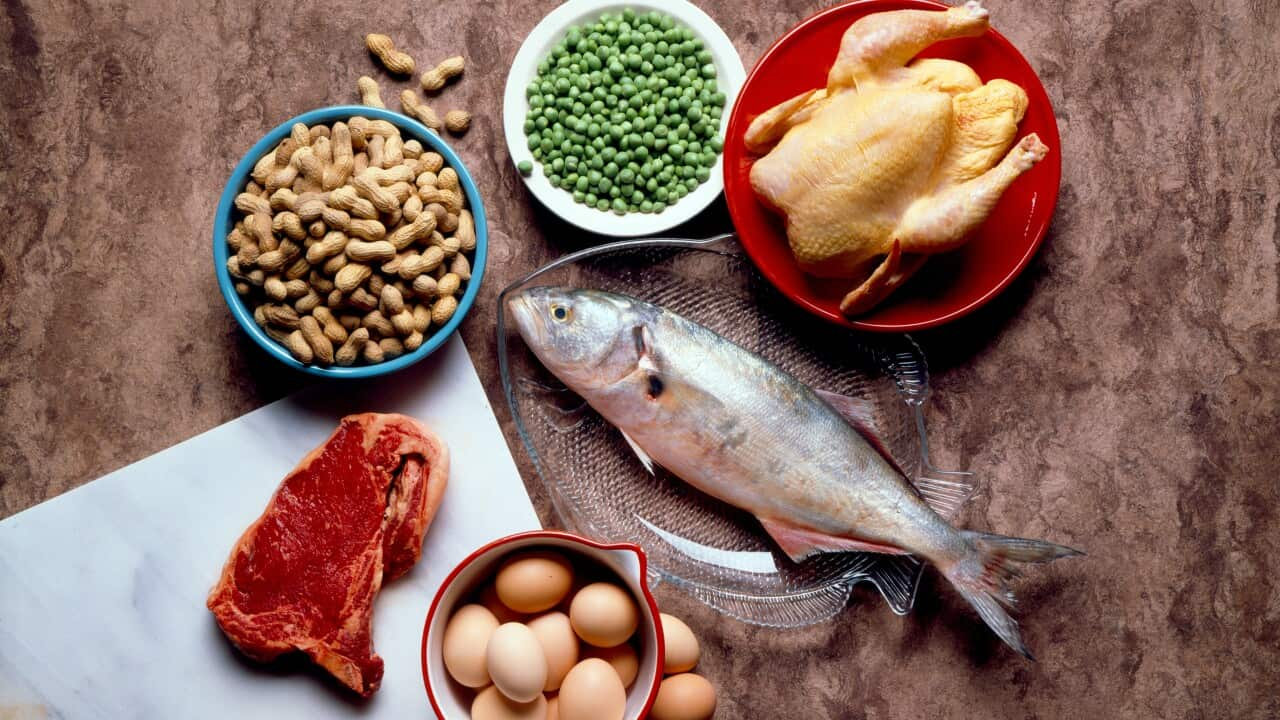TRANSCRIPT
The year began with a cost of living flavour.
The Prime Minister announced changes to stage 3 tax cuts before Parliament had even resumed - despite Labor vowing ahead of the last election that it wouldn't make those changes.
“Our government will deliver a tax cut for every single Australian taxpayer.”
The cuts were eventually supported by the Opposition - but not before Coalition treasurer Angus Taylor had called out the change of mind.
“This would be the mother of all broken promises. This is something that the prime minister and treasurer have committed to over 100 times.”
The Reserve Bank left the cash rate unchanged throughout the year - at 4.35 per cent.
Inflation has come down - the Consumer Price Index was 3.4 per cent in January, now 2.1 per cent in October.
But cost of living was still consistently ranked the number one concern for people across Australia, throughout the year.
That's why Treasurer Jim Chalmers handed down what he called a responsible budget in May, with targeted relief, including changes to the way HECS is indexed, the tax cuts, and $300 off household energy bills.
“Every budget asks us to strike a series of fine balances, but this one was really defined by them... The judgement we made was that the most efficient way to give cost of living relief was to provide it to every household.”
Cost of living pressures also drove a focus on supermarket behaviour.
The government and consumer commission launched an inquiry into pricing practices, competition in the sector, and the industry's impact on inflation.
Coles Chairman James Graham told the company's shareholders the ACCC's investigation was being taken seriously.
“We are very conscious of the significance of these allegations as they go to the heart of customer trust.”
Andrew Giles was in the firing line this year from his opposition counterpart Dan Tehan over perceived failings in his Immigration portfolio.
“Minister Giles has been hopeless and hapless in handling this for over 12 months.”
It began late last year, with the High Court's NZYQ ruling that found people could not be indefinitely detained with no real prospect of deportation.
It forced the government to release around 200 people, many of which had crim inal records, into the community.
The fallout from that decision continued throughout the year, with ongoing issues over how the government imposed monitoring conditions on the cohort, and further High Court challenges.
The opposition also criticised a ministerial direct ion that allowed non-citizens with long standing ties to Australia who committed serious crimes to remain in the country.
That direction was eventually overturned.
“Minister Giles has shown he's not up to it. The Prime Minister now needs to step in and act.”
Eventually, Anthony Albanese announced his first cabinet reshuffle.
Indigenous Affairs Minister Linda Burney and Skills Minister Brendan O'Connor announced they would retire at the next election, and give up their portfolios immediately.
That saw Andrew Giles demoted from the Immigration portfolio, and former Home Affairs Minister Clare O'Neil moved to Housing.
Malarndirri McCarthy took over the Indigenous portfolio, and Tony Burke moved into the Immigration and Home Affairs role.
Sam Mostyn took over as Governor General of Australia, and former leader of the Labor Party Bill Shorten also announced his retirement.
The conflict in the middle east has generated plenty of attention in Australian politics.
Foreign Minister Penny Wong accepted a report by former Australian defence force chief Mark Binskin into the killing of Australian Aid Worker Zomi Frankcom, who died in an Israeli air strike whilst delivering humanitarian assistance.
The report said her death was the result of Israeli Defence Force failures.
Zomi was one of more than 200 aid workers killed in Gaza this year alone.
The Minister also led the repatriation effort to assist thousands of people to return to Australia, when Israel started bombing Hezbollah targets in Lebanon.
“If you are able to secure a seat on a flight, please take that seat. If you have a seat on today's flight, don't delay.”
Consequently, as politicians worried that the conflict in the middle east was hurting the bonds within Australian society, social cohesion became the buzz word of the year.
“Social cohesion should not be taken for granted."
"And social cohesion, I should say."
"And the breakdown of social cohesion across society.”
Much of that concern was because many parliamentary offices around the country being vandalised.
Thousands of Australians taking to the streets to protest Israel's attacks on Gaza.
Senator Fatima Payman also left the Labor Party, moving to the cross bench after criticising the government's response to the Israel/Hamas war.
“So it is with great humility and deep responsibility that I announce the formation of Australia's Voice, a new political party for the disenfranchised, the unheard, and those yearning for real change.”
The long running Royal Commission into Defence and Veterans Suicide was finalised this year, the government agreeing in full, or in-principal, to 104 of the 122 recommendations.
“For many, this has meant revisiting the darkest moments of their lives. Twelve public hearings, 340 witnesses, 900 private sessions, more than 5,800 submissions were made to this Royal Commission. It is a measure of the extraordinary courage of those involved, and a reflection of their great selflessness.”
2024 also saw the Opposition set the platform for an energy debate at the next election.
They've proposed seven sites for nuclear reactors to be built across Australia - but independent reports have questioned its feasibility.
“We want to utilise the existing assets that we've got. And the poles and wires that are used at a moment on the coal-fired power station sites can be utilised to distribute the energy generated from the latest generation nuclear reactors.”
The 2024 Parliament finished with a sprint.
“We passed 31 bills yesterday and 45 bills through the week, which I don't think is quite the record, but it's certainly right up there.”
Included in those 31 bills was a world-first social media ban for kids under 16, passed with bipartisan support on the final sitting day.
Tech companies now have 12 months to ensure underage kids can't access their platforms.
“Social media is doing harm to our kids and I'm calling time on it. I've spoken to thousands of parents, grandparents, aunties and uncles. They, like me, are worried sick about the safety of our kids online.”
For the Prime Minister, the year had its ups and downs.
He got engaged, copped criticism for buying a 4 million dollar home, and earned the name 'Airbus Albo' for allegedly requesting free flight upgrades for personal flights, something he denies.
And whilst most of the slate of bills have been cleared, he insists he will return to the Parliament as the Prime Minister before an election is called next year.













